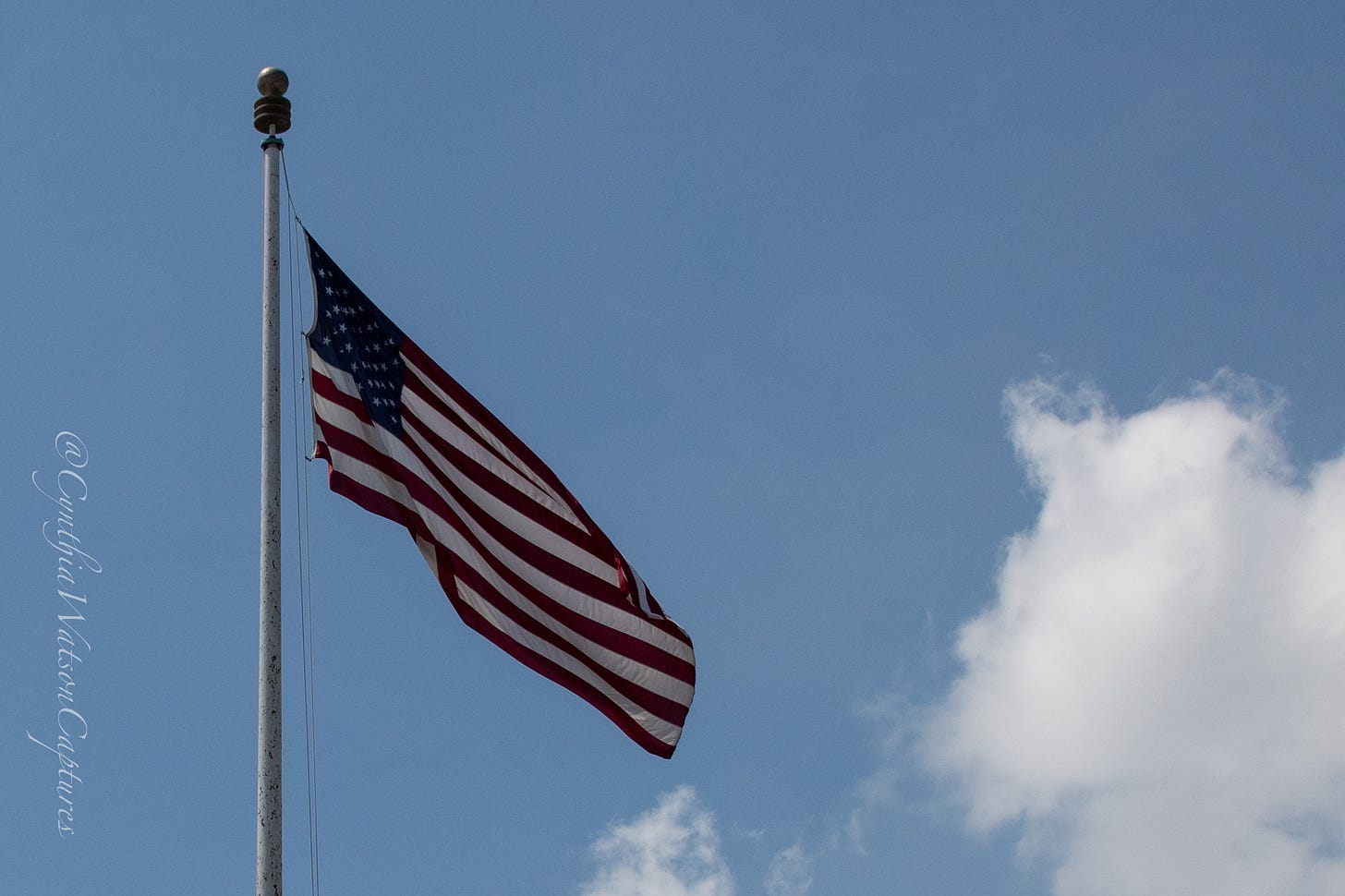existential efforts
humble thoughts on 1944
We commemorate the bravery and heroism of thousands of U.S. military personnel who executed the Normandy invasion eighty years ago this morning. I won’t pretend to understand the courage it required but respect it deeply.
My only visit to the beaches was a rainy and chilly Wednesday morning in late June eight years ago. The nearby museum offered a good summary of the event but I was unprepared for the scene itself. Much as I wonder regularly how men had the courage to undertake Pickett’s Charge on the third day at Gettysburg in 1863, I felt sheer awe that men would embark on an operation across a vast, unprotected beach at Normandy. I suppose at that point the survival instinct is sheer will, desperately hoping it overwhelms the dangers of each millisecond of the action and the unpredictability of fate.
My late former father-in-law, not yet 22, was a Navy ROTC graduate of the University of MIchigan when he commanded a landing craft that morning. He discussed the event and surrounding activity only when asked directly, typical of his generation playing down the importance of their individual heroism. He and those who served in that conflict had no social media accounts to tout everything they did. They did not publicly catalog the peril, the close calls (Bill survived with a poignant momento: a bullet hole in his flak jacket rather than his chest), and the blood around them. Their quiet pride in participating in defeating the existential threat to western democracy seemingly sufficed as thanks for their actions.
World War II, whether in Europe or the Pacific, marked a period of almost unanimous national commitment. That sentiment is virtually impossible to grasp today as we Americans increasingly divide on everything. Indeed, far too many voices for my comfort advocate the same anti-Semitic, authoritarian measures that empowered the Nazis and their allies in the 1930s in their determination to eradicate a people while subjugating those with opposing views across the globe. Those were the ideas we sought to defeat so why are we celebrating and resurrecting them today? Let’s not kid ourselves as that is the goal of too many in this country today, by their words and deeds.
I worry regularly about our internal divisions, not least because we seem to forget what this sacrifice entailed. Today, 6 June we must honour those precious few still among us, to celebrate their commitment, their luck, and their lives as part of a generation who put country above self.
Few military men and women I know are comfortable with society’s current habit of saying ‘Thank you for your service’. Service to the nation, however, is to a cause far greater than the individual. The root of the current discomfort, I suspect, is that the comments underestimate the depth of these individuals’ commitment to a concept, an ideal above themselves: assuring that future generations share in the bounty and opportunities of this great American nation.
I suggest, as a tribute to the Operation Overlord veterans, that each of us read a history of World War II to assure we understand the context, the threat, the excrutiating cost, and the actions taken to prevent a repeat occurence. At a minimum, one can revisit Saving Private Ryan, the 1998 portrayal of the landing and the aftermath U.S. soldiers saw in France. D Day plays a central role in world War II but it is only a portion of what each and every single one of us ought know about our history. That would be a more fitting tribute than wataching five seconds of footage in a context-free manner. A couple of starting suggestions follow.
Let us not forget that the world we built following that horrible conflict that cost tens of millions around the world includes a U.S. involvement in assuring it does not happen again. Not all of our putative allies take that same position that the world today is one to preserve so we need pay attention.
Actions create consequences.
Thank you for reading today’s column. I appreciate your time and welcome your comments.
Be well and be safe. FIN
Rick Atkinson, The Army At Dawn: The War in Africa, 1943-43, The Liberation Trilogy volume 1, The Day of Battle: The War in Siciliy and Italy, The Liberation Trilogy volume 2, and The Guns at Last Light: The War in Western Europe, 1944-45, The Liberation Trilogy volume 3. New York: Henry Holt, 2002/2007/2013.
Max Hastings, Overlord. New York: Simon & Schuster, 2015.
Saving Private Ryan. 1998.



too many never got to see the sunlight that morning. thank you for your description, Jim. It behooves us to remember...and act like we remember.
Out of all of my world travels, the one trip I'll never forget was my visit to Normandy. There is no way to put my feelings into words that adequately describe what it was like to stand on those beaches and overlooking cliffs with a cemetery behind me with rows and rows of white crosses. What always sticks with me was seeing one of those crosses indicating the date of death was on June 6th, 1944. That young man hit the beach right below the location of that cross ... and never made it any further. So incredibly sad and moving.
Your words captured the significance perfectly.